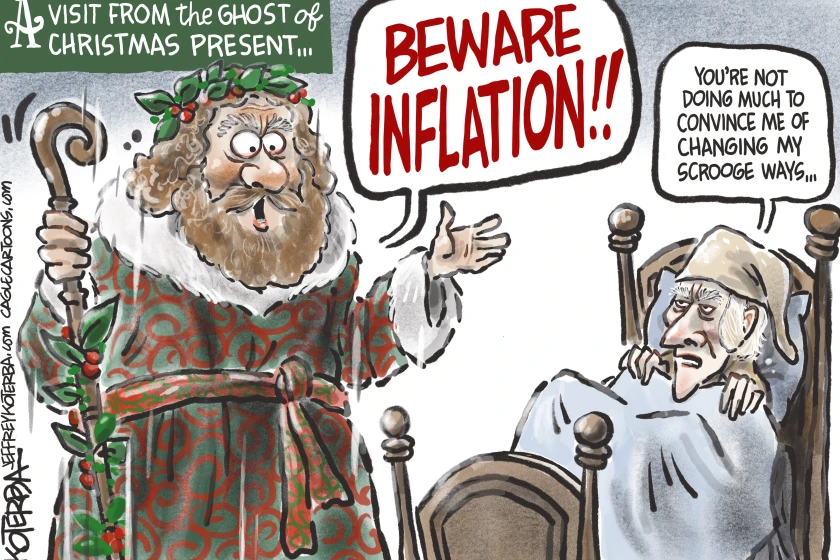| Local View: Call it economics — or just mumbo jumbo about money |  |

From the column: "Today we are surrounded by the confusing lexicon of economics ... (and) are similarly surrounded by professors and politicians who purport to understand it."
By John Freivalds
Published 12/12/2022
Duluth News Tribune
Economics is that science that describes, analyzes, and explains how people allocate scarce resources to unlimited wants. That’s what Father Zrinyi, my economics 101 prof at Georgetown University, taught me.
I prefer the definition given to us by the Rolling Stones: “You can’t always get what you want. But if you try sometimes, you just might find, you get what you need.”
Today we are surrounded by the confusing lexicon of economics: inflation, gas prices, credit card debt, recession, taxation, mortgage interest rates, credit scores, trade deficit, 401Ks, you name it. Microeconomics. And we are similarly surrounded by professors and politicians who purport to understand it and how to make your money go further. Macroeconomics.
First, the professors. A noted economist at Harvard, the late John Kenneth Galbraith, wrote that, “Economics is extremely useful as a form of employment by economists.” I mean these guys throw everything at you and have even developed their own obtuse terminology. To wit, diminishing marginal utility or, as they say in the country,” too many cooks in the kitchen spoil the pot.”
Or how about price elasticity of demand? For example, if raspberries are $10 a package, you won’t buy them; but if they are $2.99, you will. Maybe you will even buy several!
Then we have regressive taxation, where taxes are a burden to people who don’t earn all that much. Put another way: them that has, keeps — or they try to with tax shelters or Swiss bank accounts.
Finally, there’s the phenomenon of business cycles. My boss in the grain business put it simply: ”High prices cure high prices, and low prices cure low prices.” Thus, Quora asks, “Have economists and experts turned economics into mumbo jumbo that makes no sense, and they only pretend they can understand it?” Try this on for size from Wikipedia: “The fact that unemployment and inflation often rise sharply, and that growth often slows as GDP fails, may be evidence of poorly executed macroeconomic policy.” Huh?
If professors weren’t obtuse enough, you have politicians entering the economic-jargon fray. Noted political economist John Maynard Keynes summed it up by saying, “In the long run, we are all dead.” And the job of a politician spouting economics is to make sure your constituency gets all it wants now!
Politicians are good at economic jargon as well. President Ronald Reagan’s economists came up with “supply-side economics.” What that really meant was do not tax the rich because they will spend their profits to build more factories and hire more workers with full medical benefits and profit-sharing. This was called trickle-down economics, too. Years later, George H.W. Bush called this “voodoo economics.” But the supply-side theory still exists, even though there is no proof it works. Investopedia defines it as “a derogatory phrase by George H.W. Bush in reference to (Reagan’s) economic policies, which stated you can maintain and increase levels of spending without raising taxes. And taxes are no longer called that, but rather investments in the future.”
Yet when someone in the private sector comes up with an innovative way to make money, few skeptics seem to be around. Consider bitcoins and cyber currency. Is cryptocurrency a good investment? Wikipedia called bitcoin “a risky investment with high volatility. It should only be considered if you have a high-risk tolerance (and) are in a strong financial position and can afford to lose any money you invest in it.” As they refer to this is in rural Appalachia, “There’s a sucker born every minute.”
The Bible says the love of money is the root of all evil. Economics just tries to explain the obvious.
John Freivalds of Wayzata, Minnesota, is the author of six books, is the honorary consul of Latvia in Minnesota, and is a regular contributor to the News Tribune Opinion page. His website is jfapress.com.
